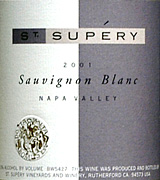|
Wine-shipping advocates win two American wine lovers still have a long way to go before most of us can enjoy the same freedom of choice in buying wine that our cousins in Europe and Down Under take for granted. But welcome news of significant victories against the anti-wine-shipping lobby came from two more states yesterday, as Texas liquor-control authorities gave up the fight against free choice, while a federal court ruled that Michigan's anti-choice legislation cannot stand. The underlying issue, as you may recall from previous articles on this simmering topic, is that the 21st Amendment to the U.S. Constitution, which repealed Prohibition in 1933, gave individual states, not the federal government, the right to control the "transportation" of alcoholic beverages within their borders, in contrast with the usual principles that make interstate commerce a federal issue. The result, over the years, has become a patchwork of independent distribution systems in which - with relatively few exceptions - wine (and other alcoholic beverages) must pass through distributors in each state, who sell to the retailers that serve the public. Although a few states have passed "reciprocity" laws allowing citizens to buy from licensed dealers in other states that return the favor, consumers in many states can't legally buy wine from any source but in-state shops. If a winery's products aren't available locally, you're out of luck. Needless to say, most wine and liquor distributors - and their well-funded national lobby group, the Wine and Spirits Wholesalers of America (WSWA) - are delighted with their protected status and fight to keep it that way. Their deep pockets and legislative savvy have succeeded in blocking most efforts to liberalize state laws that ban direct wine shipments to consumers. But pro-shipping advocates, including small wineries and wine-loving consumers, have had more success with litigation, and lawsuits have brought down unconstitutional wine-shipping laws in a number of states, typically when opponents have demonstrated that the laws unfairly treated out-of-state wineries more restrictively than local producers. Yesterday's news came from situations of just this type: In Texas, the state Alcoholic Beverage Control body announced that it would not appeal a court judgement declaring the state's no-shipping law unconstitutional; and in Michigan, the federal 6th Circuit Court of Appeals overruled a lower court decision and declared Michigan's anti-choice law unconstitutional. I'm told by wine-loving Texans that some Internet wine shops and wineries are already accepting orders from the Lone Star State, but there's still some distance to go before Texas and Michigan wine enthusiasts can enjoy a final celebration: Regulatory authorities in both states must write regulations spelling out the details of interstate shipping for their citizens, and wine producers in Michigan, in particular, are concerned that the authorities might respond by simply banning ALL wine shipping, within the state as well as across the state line. My advice: If you live in those states and you care, contact your state lawmakers and tell them what you think. WEB LINKS:
Full text of the Michigan ruling:
Coverage of the Texas ABC decision in the (Fort Worth) Star-Telegram:
Wine and Spirits Wholesalers of America (WSWA):
Free the Grapes, a non-profit consumer organization for free choice: Now, let's finish up this all-California week of tasting reports with an attractive white wine from Napa:  St. Supéry 2001 Napa Valley Sauvignon Blanc ($12.99)
St. Supéry 2001 Napa Valley Sauvignon Blanc ($12.99)
California Sauvignon Blanc (sometimes marketed as "Fumé Blanc") is generally not a category that impresses me. Often a neutral, even bland white wine, it doesn't often stand up to its cousins produced from the same grape variety in the Loire Valley or Bordeaux in France or in New Zealand. But St. Supéry's offering, a frequent award-winner, stands out. It's a pale, straw-colored wine with fresh lemon-lime aromas - well toward the citric end of the citrus-to-grass flavor spectrum that defines Sauvignon Blanc. The flavor is mouth-filling and crisp, adding a pleasant grace note of orange peel to snappy lemon-lime. Fresh-fruit acidity and appetizing citrus persists in a long, clean finish. (Aug. 13, 2003) FOOD MATCH: The wine's snappy citrus character would make it a natural with seafood or fish, but it stood up well with a more hearty alternative, new potatoes and Italian sausage pan-roasted with green peppers and onions. VALUE: Very good value at this price; it would be worth shopping around to try to beat the winery's suggested retail price of $16 for the 2002. WHEN TO DRINK: Best drunk up soon, as its fresh citric character is a virtue; but the 2001 is certainly faring well more than a year after its release.
WEB LINK: You'll find the winery's fact sheet on its recently released 2002 Sauvignon Blanc here: Administrivia To subscribe or unsubscribe from The 30 Second Wine Advisor, change your E-mail address, or for any other administrative matters, please use the individualized hotlink found at the end of your E-mail edition. If this is not practical, contact me by E-mail at wine@wineloverspage.com, including the exact E-mail address that you used when you subscribed, so I can find your record. We do not use our E-mail list for any other purpose and will never give or sell your name or E-mail address to anyone. I welcome feedback, suggestions, and ideas for future columns. To contact me, please send E-mail to wine@wineloverspage.com All the wine-tasting reports posted here are consumer-oriented. In order to maintain objectivity and avoid conflicts of interest, I purchase all the wines I rate at my own expense in retail stores and accept no samples, gifts or other gratuities from the wine industry.
Friday, Aug. 29, 2003 |




